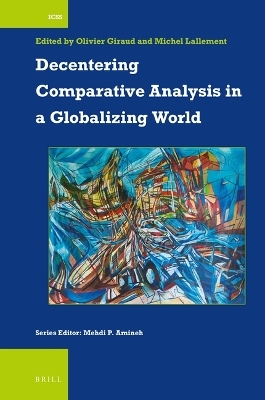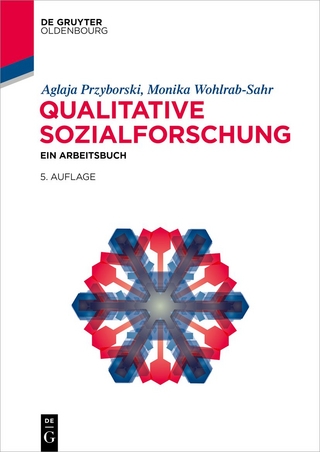
Decentering Comparative Analysis in a Globalizing World
Brill (Verlag)
978-90-04-46658-6 (ISBN)
Decentering Comparative Analysis in a Globalizing World aims to go beyond the traditional criticism in comparative analysis. It wants to shed new light on the question of comparing as a form of categorizing. In this perspective, three relevant dimensions to question the naturalized categories of comparison are mobilized: ethnocentrism, the nation, and academic disciplines. Based on original empirical work, the volume proposes to use comparative categories by mixing and shifting the analytical perspectives. It brings together contributions that come to terms with the historicity of the comparative method in the social sciences. It eventually deals with the key issue of comparability of various cases, in the enlarged context of a globalizing world.
Contributors are: Anna Amelina, Camille Boullier, Catherine Cavalin, Serge Ebersold, Andreas Eckert, Mouhamedoune Abdoulaye Fall, Isabel Georges, Olivier Giraud, Aïssa Kadri, Wiebke Keim, Michel Lallement, Marie Mercat-Bruns, Luis Felipe Murillo, Kiran Klaus Patel, Léa Renard, Ferruccio Ricciardi, Paul-André Rosental, Pablo Salazar-Jaramillo, Stéphanie Tawa-Lama, Nikola Tietze, Tania Toffanin, Michel Vincent and Bénédicte Zimmermann.
Olivier Giraud is research director at the CNRS (Lise-CNRS, Paris, France). He is a specialist in comparative policy analysis: employment and training policies, long-term care policies, gender equality policies. He recently co-edited the volume Categories in Context – Gender and Work in France and Germany, 1900–Present (Berghahn Books, 2019) with Isabelle Berrebi-Hoffmann, Léa Renard and Theresa Wobbe. Michel Lallement is Professor of Sociology at the Conservatoire national des arts et métiers, Paris, France. His research affiliations are with the Lise-CNRS. He has written articles and books on work, employment, industrial relations and international comparisons, and the history of sociology, including Un désir d’égalité. Vivre et travailler dans des communautés utopiques (Seuil, 2019).
1. Introduction: Decentering comparative analysis and beyond
Olivier Giraud, Lise CNRS-Cnam, Paris
Michel Lallement, Lise CNRS-Cnam, Paris
Part 1. Varying the analytical scale
2. Decentering comparison, questioning holism: The multi-sited ethnographic approach
Luis Felipe Murillo, University of Virginia - Charlottesville
3. Close comparison in a global world: Categorizing the quality of work in a multinational company
Bénédicte Zimmermann, EHESS, Paris, Wissenschaftskolleg Berlin
Léa Renard, Freie Universität Berlin
4. Decentering comparative strategies in cross-border studies: Towards a comparative analysis of scale making within assemblages
Anna Amelina, Universität Cottbus
5. Engaging in a dialogue - An experiment in comparative employment Law
Marie Mercat-Bruns, Lise CNRS-Cnam, Paris
6. Which decentered methodological framework is best for comparing inclusive education policies?
Serge Ebersold, Lise CNRS-Cnam, Paris
7. Spectral comparisons: universalization, generalization, and the resource curse
Pablo Jaramillo, Universidad de los Andes – Bogota
Part 2. Comparison: A historical phenomena and the social sciences
8. The rise of comparison and the rise of the New Deal order
Kiran Klaus Patel, Ludwig Maximilian University, Munich
9. Silicosis as a test case for the decentering of medical and labor history
Paul-André Rosental, Science Po, CFR- EHESS, Paris
Catherine Cavalin, Irisso-CNRS-Université Paris Dauphine
Michel Vincent, Minapath Développement
10. Homo Africanus vs homo œconomicus: looking back and forth
Mohamedoune Abdoulaye Fall, LASP-D, Saint-Louis du Sénégal
11. The rise and strength of authoritarian restoration – Constructing a comparative logic for research
Wiebke Keim, Sage-CNRS, Strasbourg
12. Comparing the Social and Spatial Inscription of Women’s Work
Tania Toffanin, Università degli Studi, Padova
13. Categoring difference: labor and the colonial experience
Ferruccio Ricciardi, Lise CNRS-Cnam, Paris
Part 3. Building commensurable universes for comparative analysis: Opportunities and constraints
14. Comparative Research Between France and India: A View from Within
Stéphanie Tawa-Lama Rewal, EHESS, Paris
15. Comparability and conditions of comparability in education. Globalization of education: economist ethnocentrism versus culturalist singularism
Aïssa Kadri, Université Paris 8
16. Comparing imagined transnational communities in France and Germany, or Playing national and European categories – religion, language, territory – at their own game
Nikola Tietze, Hamburger Institut für Sozialforschung, Hamburg
17. Communities, organization of work, and institutional mediation: comparing the United States and France
Camille Boullier, Lise CNRS-Cnam, Paris
Michel Lallement, Lise CNRS-Cnam, Paris
18. On the crossroads of territorialities and temporalities: the making of social politics in Brazil
Isabel Georges, IRD-UMR 201 Développement et societies, Paris
19. Entangled politicizations. Democracy against the market in long-term care policies
Olivier Giraud, Lise, CNRS-Cnam, Paris
Concluding remarks
Andreas Eckert, Humbold University Berlin
| Erscheinungsdatum | 25.10.2021 |
|---|---|
| Reihe/Serie | International Comparative Social Studies ; 53 |
| Verlagsort | Leiden |
| Sprache | englisch |
| Maße | 155 x 235 mm |
| Gewicht | 999 g |
| Themenwelt | Sozialwissenschaften ► Soziologie ► Empirische Sozialforschung |
| ISBN-10 | 90-04-46658-4 / 9004466584 |
| ISBN-13 | 978-90-04-46658-6 / 9789004466586 |
| Zustand | Neuware |
| Haben Sie eine Frage zum Produkt? |
aus dem Bereich


